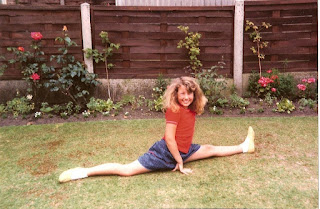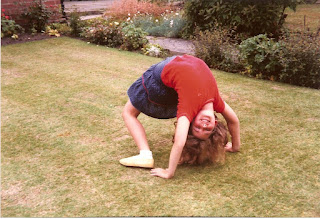 In my life I’ve
read several life-changing books. Both fiction and non-fiction books have
contributed to my understanding of the world and people around me. However, a
couple of books I have recently read have been fundamental to finally starting to
understand myself.
In my life I’ve
read several life-changing books. Both fiction and non-fiction books have
contributed to my understanding of the world and people around me. However, a
couple of books I have recently read have been fundamental to finally starting to
understand myself.
I originally purchased these books to help me with my work at The Nerve Injury Clinic – where I provide rehabilitation yoga to some of the patients. I wanted to increase my knowledge for when I’m working with hypermobile clients. So sought out a few books on hypermobility, particularly with regard to yoga.
One was a book by a very experienced yoga teacher who has hypermobility in the form of Ehlers-Danlos Syndrome (EDS)
I began reading and found everything very interesting, then some of the case studies and quotes from people that were presented in the book started to resonate with me in profound ways. I’ve always known I’ve had some natural flexibility and liked tying myself up in knots when I was a child. Then I trained that flexibility even more when I began doing yoga more seriously in my adult life. I never felt like I was bendy though – I knew people were telling me I was and seemed impressed when I did the splits or ‘pancaked’. In all honesty, I felt rather clumsy and not elegant in my movements, but uncoordinated, and very awkward at times (both physically and socially). I was terrible at team games as I felt I had no idea what was going on!
This book and some discussion with experienced body work practitioners, has helped me realise that I do have hypermobility (falling into the generalised joint hypermobility category) and I also have some of the things that often go hand in hand with it. (I score moderately high on the Beighton scale which is a measurement for hypermobility). For example, many people with hypermobility experience increased levels of anxiety, which I often experience and I work hard to manage. It makes sense that if your body doesn’t feel particularly stable, that is going to affect how safe you feel. But of course, we only know how we feel and that becomes our ‘normal’.
Like many hypermobile folk, I have some sensory hypersensitivity too – particularly lights and certain sounds, yoga has definitely helped manage that. In social situations I used to use alcohol to help me manage this sensitivity, this is not an approach which I would recommend, as this in itself brings an anxiety when it wears off! I'm teetotal now and these days I limit how much social stimulation I get – it’s necessary for me to do this so I can function effectively in the world. If I don’t do this – I feel I want to shut down completely, and go and live in a remote place! I love social connection – but I’ve learnt I don’t need a lot to feel satiated and connected.
Sadly, some health professionals advise people with hypermobility not to do yoga, but I think we have be specific – there are probably some forms of yoga with emphasis on end-range movements/extreme postures that are the last thing a hypermobile person needs, but yoga that focuses on strength in the body, resilience in the nervous system and emotional regulation can be incredibly helpful.
I have also found running and weight training in tandem with my yoga practice is key to ensuring my joints are supported by strong muscles and that I can at last feel safer in my own body…
Photos: Me when I was about 8 or 9 years of age.


No comments:
Post a Comment